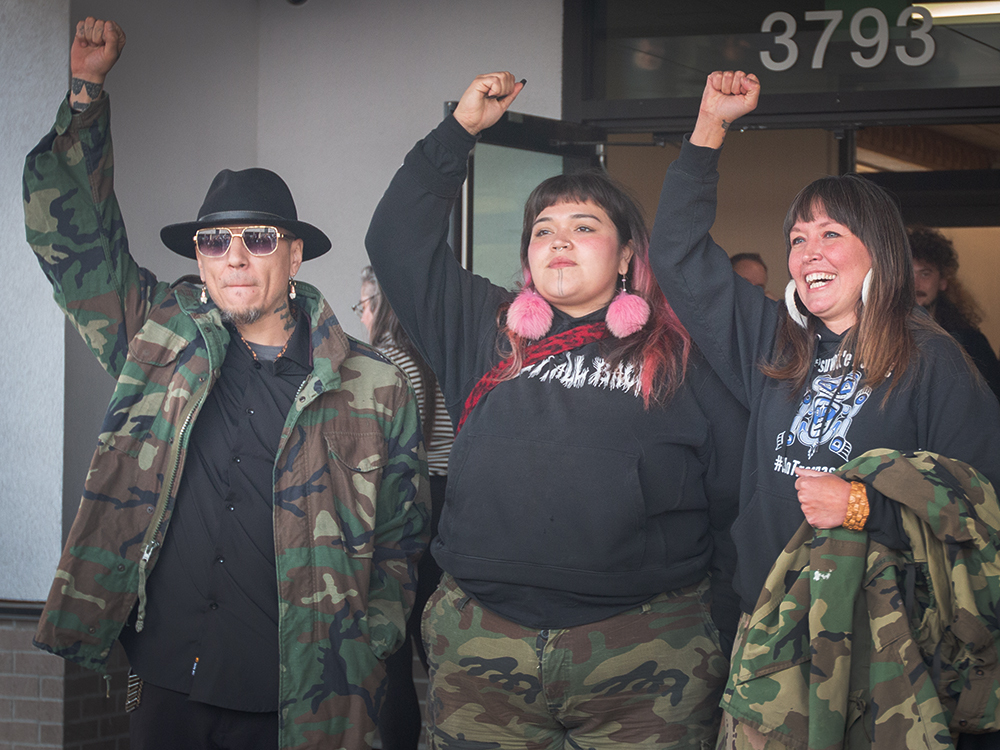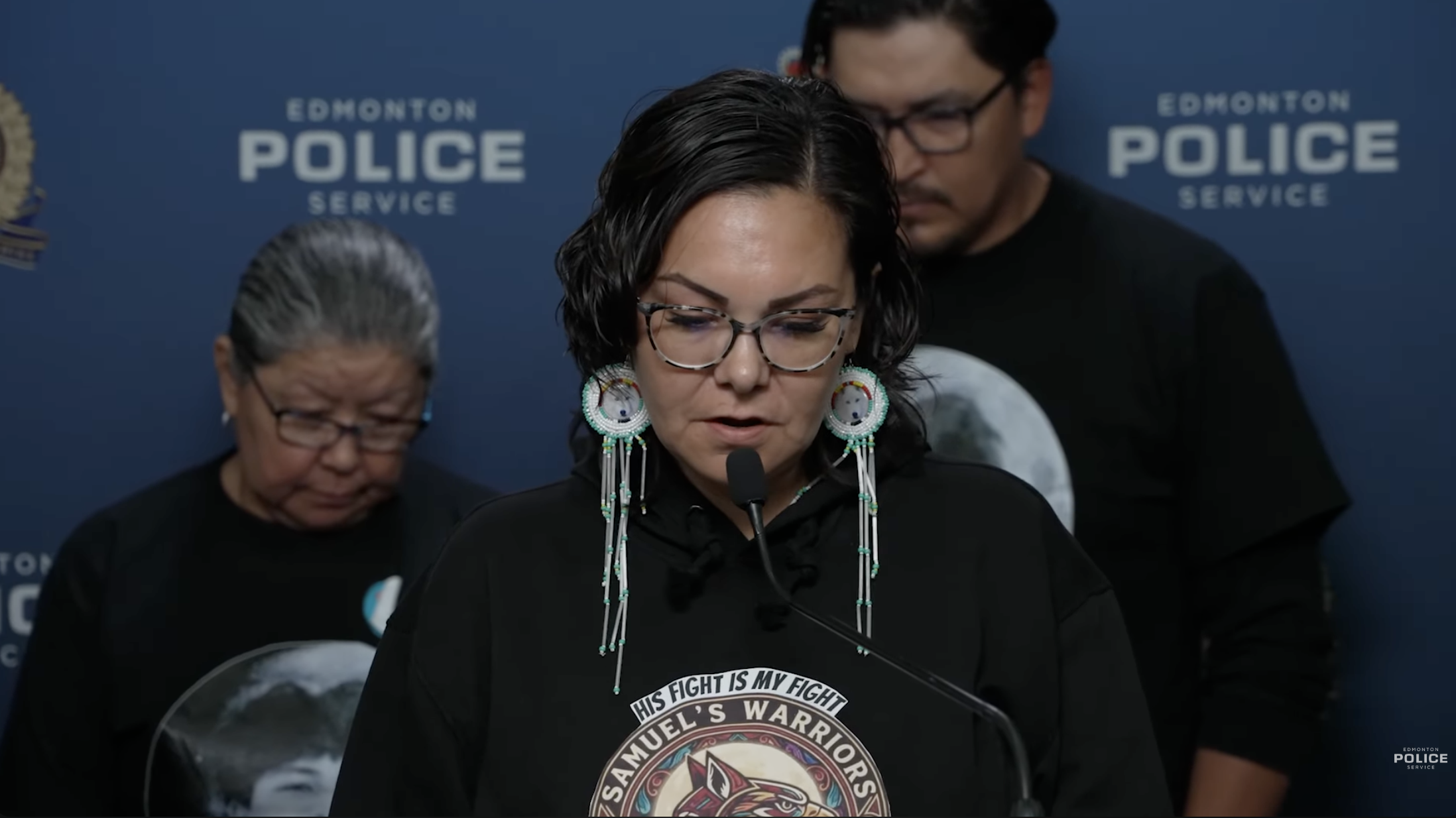Wellness webinars offer at-home alternative to community programming during pandemic
The nine-part series promoting resiliency focuses on holistic health and traditional teachings.

A group of Vancouver Island health and wellness workers have partnered with the First Nations Health Authority to provide free online workshops promoting resiliency.
“[The] Xpey’ Wellness team kind of came from a response to COVID and all of the closures,” says administrative coordinator Beangka Elliott.
Xpey’ Wellness – pronounced kha-pay – is composed of Elliott, Harlee-Kay McArthur and Marco Caffiero. Before the pandemic, the trio had been coordinating in-person health and wellness activities in partnership with the Coast Salish nations on Vancouver Island. But when the pandemic hit, they pivoted.
They have been offering interactive online workshops on topics such as canning, respiratory health, and food as medicine.
“Most of the communities were closed off to the public and were operating kind of at a minimum, and most of the wellness programming came to a halt,” says Elliott. “We thought as a team with our skill set that we could coordinate activities online.”
Upcoming webinars
Elliott, who is a member of the Tsartlip First Nation, will lead the next webinar on Sept. 17. It will focus on how traditional medicines can be used to support the immune system.
The Xpey’ Wellness’ workshop series on promoting resiliency began on July 23 and continues until Nov. 12. The webinars are focused on Coast Salish communities and are available free online through Zoom and Facebook live.
Future topics include harm reduction in cannabis use, resiliency through physical activity and respecting tobacco. Elliott says that the workshops series intentionally covers a wide array of topics.
“To be healthy you can’t just look at one thing in isolation,” says Elliott. “You have to take care of yourself in lots of ways and that is what I think this webinar series is trying to do.”
Traditional teachings
Each workshop is unique and features different experts. IndigiNews attended Xpey’ Wellness’ Sep. 3 webinar, about how traditional medicines can be used to promote lung health.
During the webinar, hosts Robynne Edgar and Gerry Oleman shared knowledge of how native plants such as cedar, and European plants such as mullein, can help clear one’s lungs.
Edgar, who has Cree/Métis and Japanese heritage, explained how she gathers, dries and uses medicines to support healthy lungs. Oleman of the St’at’imc Nation, spoke about the importance of ceremony and spoke about resiliency, which he defined as the ability to recover quickly “when we are traumatized or hurt.”
He said that he hopes First Nations Peoples can reclaim their traditional knowledge of medicines and holistic wellbeing, “because the best medicine, of course, is prevention.”
Recognizing community
The same community closures that prompted the Xpey’ Wellness team to go online prompted Larissa Coser, the FNHA Tobacco Cessation and Reduction Coordinator for Vancouver Island, to reach out to Elliot.
“[In] Respecting Tobacco we use a cultural approach to help people quit smoking,” Coser says. “Now more than ever, it’s really important that people think about their lungs and think about smoking, but now I can’t go into [communities].”
Promoting holistic health is one of the mandates of the First Nations Health Authority, Coser says, and the workshop series helps them do just that.
“I’ve been in this position for two years and all I hear is, ‘we need more culture, we want more culture,’” says Coser. “Our mandate at the First Nations Health Authority is to include traditional wellness in everything that we do.”
Coser reached out to Elliot because she knew her previous work in communities, before Xpey’ Wellness had its official name.
Elliott says that when her team moved online, the group worked to find a name that included a reference to Coast Salish culture. “At the time, we didn’t have a name, we were just the coordination team,” she says.
Although they first looked to the ocean and the water for names, the group decided on a word from the land that ties all of the communities they serve together.
Xpey’, is the word for the Western Red Cedar in many coastal languages and dialects, such as Hul̓q̓umín̓um̓, and SENĆOŦEN, though it may be spelled differently.
“We thought about what represented all of the communities that we worked with,” Elliott says. “Cedar is sacred in our communities, especially Coast Salish Peoples. It’s something that’s really special and unique…so we thought that that word was appropriate.”
Author
Latest Stories
-
‘Bring her home’: How Buffalo Woman was identified as Ashlee Shingoose
The Anishininew mother as been missing since 2022 — now, her family is one step closer to bringing her home as the Province of Manitoba vows to search for her
-
Land defenders who opposed CGL pipeline avoid jail time as judge acknowledges ‘legacy of colonization’
B.C. Supreme Court sentencing closes a chapter in years-long conflict in Wet’suwet’en territories that led to arrests
-
Samuel Bird’s remains found outside ‘Edmonton,’ man charged with murder
Officers say Bryan Farrell, 38, has been charged with second-degree murder and interfering with a body in relation to the teen’s death













